Globalisation Impact on HR Functions: Nestle Case Study Report
VerifiedAdded on 2023/01/19
|6
|601
|40
Report
AI Summary
This report investigates the impact of globalization on the HR functions of multinational corporations (MNCs), with a specific focus on Nestle. The assignment begins by outlining the aim and objectives, which include examining the role of globalization in Nestle's HR, identifying the performance of globalization in HR, determining the factors affecting globalization on HR functions, and recommending strategies to minimize the negative impact of globalization. The findings suggest that globalization influences employee behavior and attitudes, impacting recruitment, selection, and training. The report also highlights the positive aspects of globalization in terms of employee selection. The research utilizes an interpretivism research philosophy and qualitative methods, including insights from 20 respondents. The report concludes with a reflection on the learning experience and a list of relevant references. The study offers a deep understanding of globalisation and its effects on HR policies.
1 out of 6
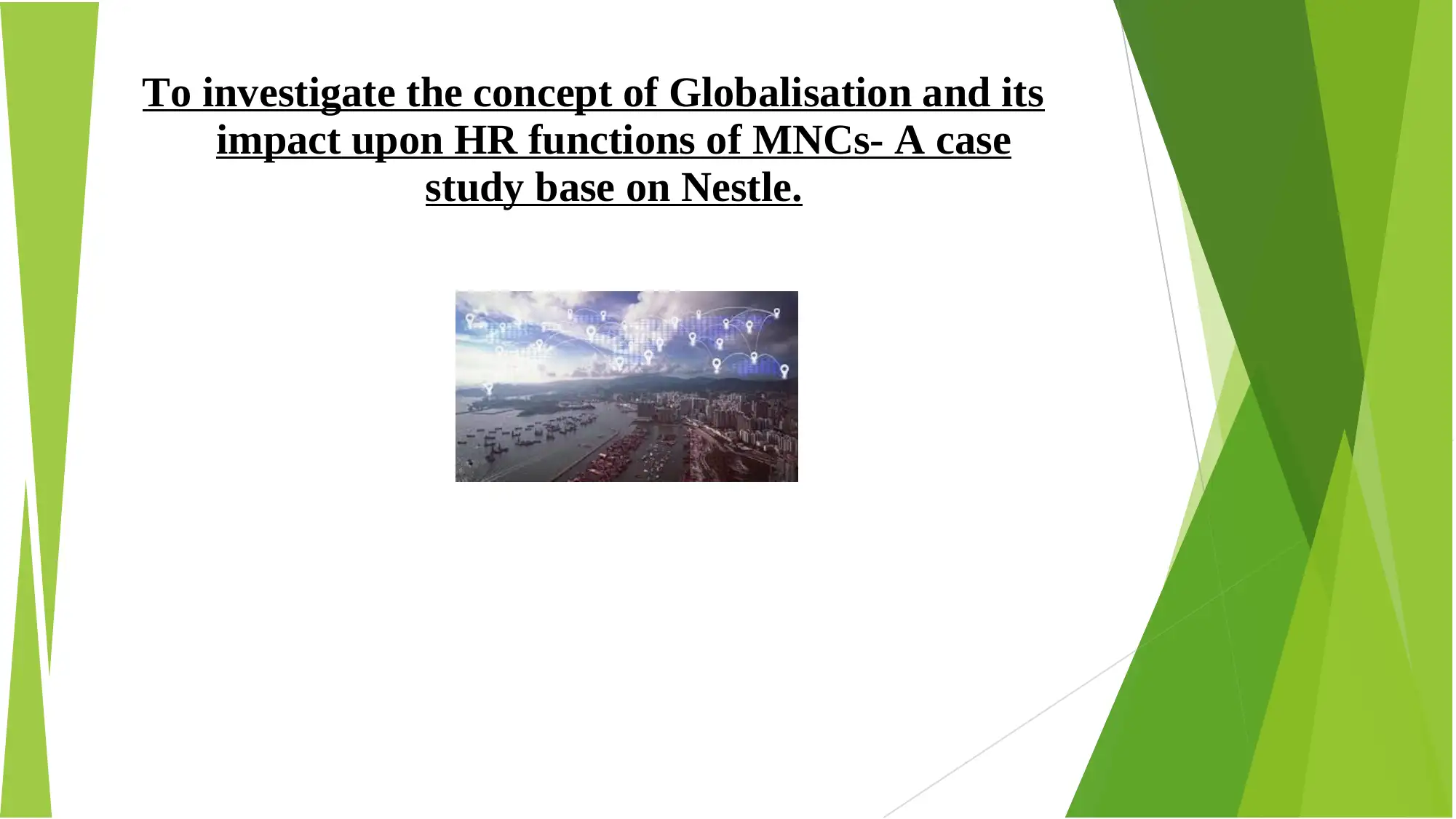
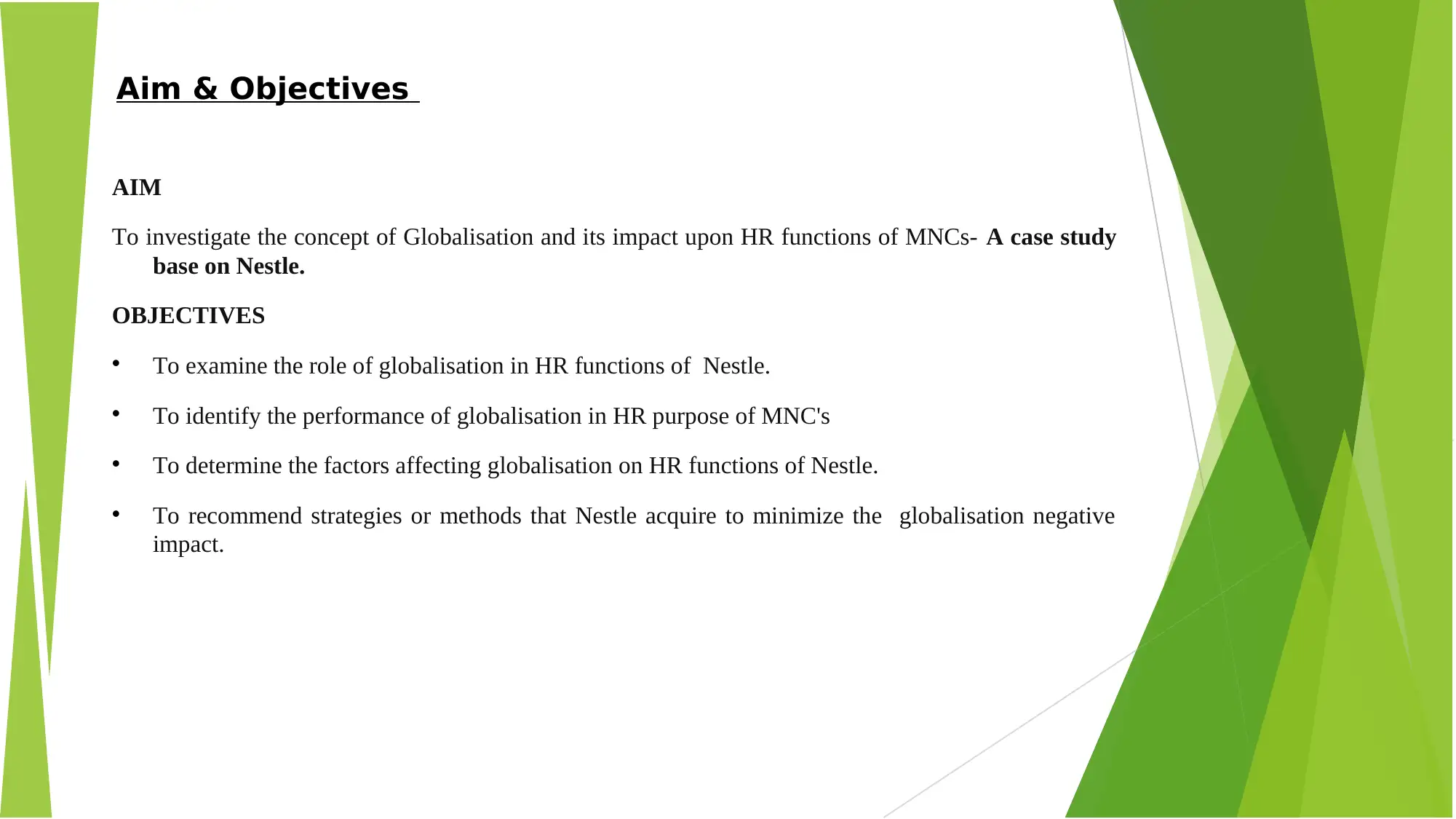
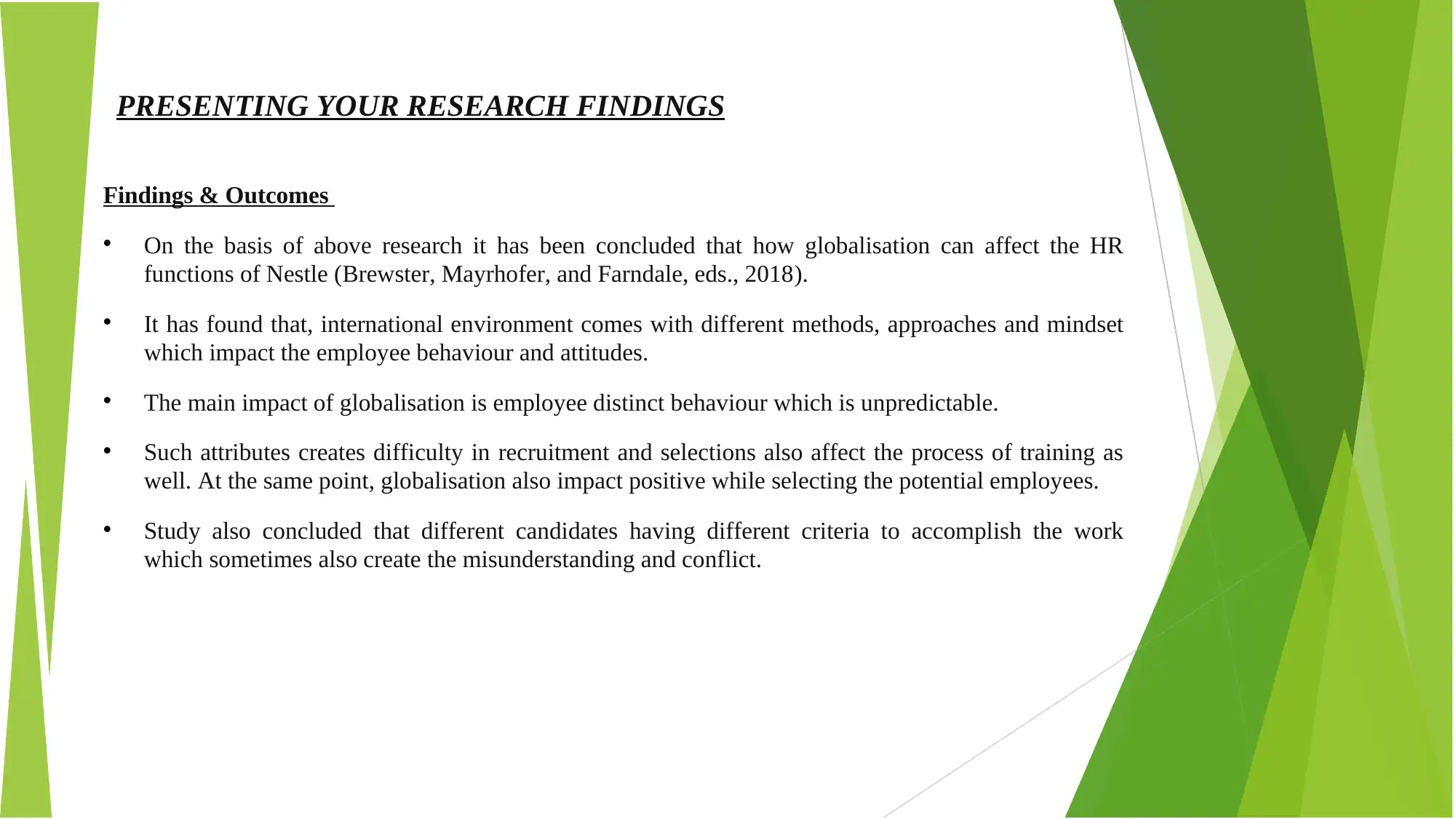

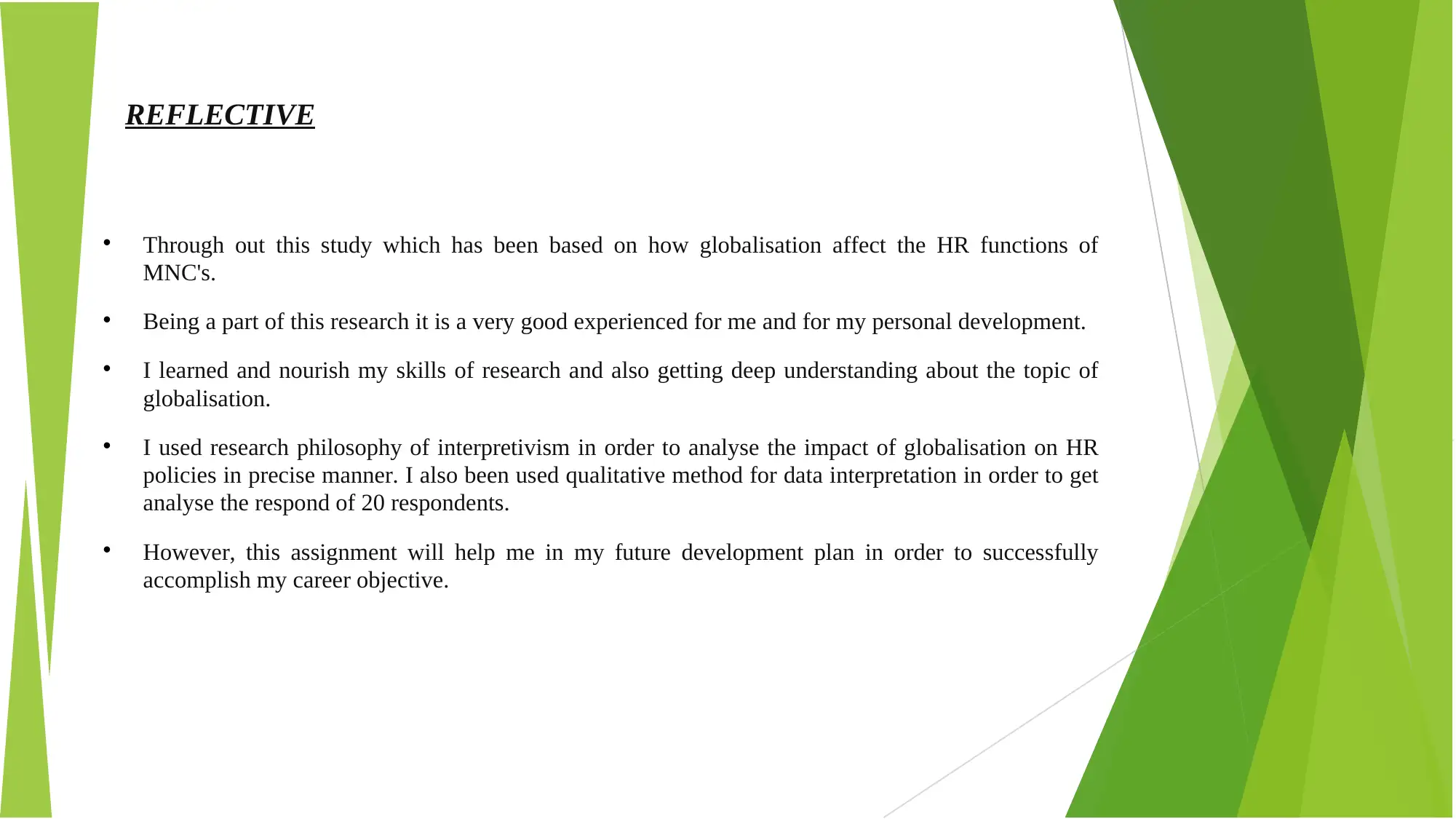
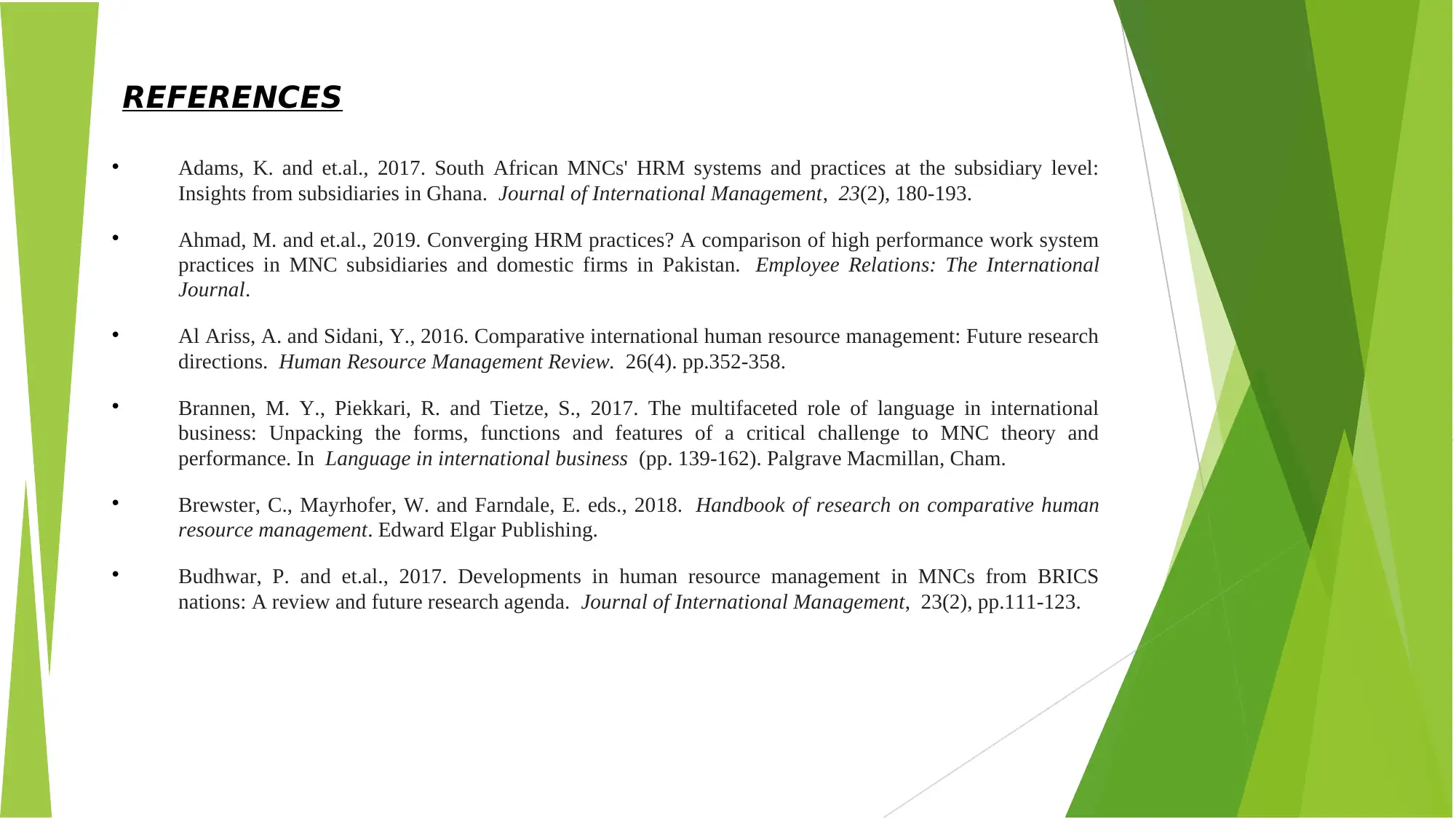







![[object Object]](/_next/static/media/star-bottom.7253800d.svg)